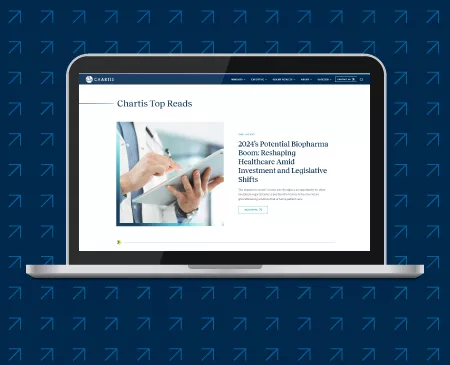The Buzz This Week
On July 31, 2025, the Health Resources and Services Administration (HRSA) announced in a Federal Register notice a 340B Rebate Model Pilot. It permits qualifying manufacturers to deliver the statutory 340B price through post-purchase rebates, rather than the traditional point-of-sale discount, for a defined set of drugs. The pilot could have significant financial implications for qualifying hospitals and health systems, particularly safety-net providers.
Historically, the 340B Drug Pricing Program allows eligible hospitals and clinics to buy outpatient drugs from manufacturers at steep discounts, with typical reductions ranging from 25% to 50% while billing negotiated rates. The goal is to help providers extend limited resources to meet community needs.
HRSA will initially limit the new pilot to 10 drugs on the Centers for Medicare & Medicaid Services’ Medicare Drug Price Negotiation Selected Drug List for the 2026 price year. Manufacturers participating in the Medicare Drug Price Negotiation Program may apply to HRSA for inclusion in the 340B Rebate Model Pilot. Manufacturer participation is voluntary, but provider participation is required.
The notice describes which key aspects of 340B will change under the pilot model. Covered entities would purchase the drugs at wholesale acquisition cost and later receive a rebate equal to the difference between that cost and the 340B ceiling price. Additional key changes include payment timing, reporting requirements (covered entities submit a limited claims data set within 45 days with real-time reconciliation), advance notice to covered entities, and dispute handling through HRSA audits or administrative dispute resolution.
HRSA set a tight schedule for feedback on the pilot. Public comments are due in early September and manufacturer applications follow in mid-September. Approvals could come as early as October for a January 1, 2026, start date. Provider groups have asked HRSA to extend the timeline for comment, citing cash-flow concerns from paying full price upfront and the administrative lift of running concurrent rebate and discount processes.
Why It Matters
Providers take on timing risks associated with the new pilot model. Paying wholesale acquisition cost upfront and waiting for a rebate, even with a 10-day payment target, creates recurring cash-flow gaps that can compound across high-spend categories.
Significant uncertainty in the final details of the pilot program also leave providers in a precarious position. Given the short turnaround time, providers may have to prepare for new pilot regulations prior to finalization of program rules and manufacturer participation. And if manufacturers opt-in, there is no guarantee or requirement that they meet the 10-day payment target, which could widen the cash-timing gap.
Leaders should evaluate their general exposure to this timing shift, understand how variability in rebate adjudication could affect budgets, and consider prudent liquidity planning that fits their organization’s risk tolerance.
Operational complexity also will increase as teams run discount-based and rebate-based models in parallel. HRSA’s operational requirements (limited data elements, real-time reconciliation, and manufacturer-funded platforms) help, but covered entities will still require reliable data lineage from dispense to claim to rebate, clear exception management, and audit trails.
Even if providers can meet new requirements, there are concerns of increased denials in some circumstances, including organizations that use alternative distribution arrangements. Denial and appeal pathways may be unclear, adding more administrative burden and financial implications. An organization’s ability to produce timely and complete files and manage denials at scale will determine whether the increased burden will result in manageable friction or sustained cash pressure.
Policy and participation remain fluid, including the length of the pilot and how HRSA will use the results. HRSA is testing whether rebates can defuse 340B/MFP and Medicaid duplicate-discount frictions without eroding the program’s economics. If the pilot proves timely, transparent, and fair, including on-time payments, minimal denials, and clean reconciliation, it could expand beyond the initial MFP drug set. If the pilot yields delays or introduces new administrative challenges, expect intensified pushback and potential policy recalibration.
Leaders should track which drugs and manufacturers are in scope for any approved models, monitor HRSA communications, and engage in the comment process, as appropriate. They should also plan for denial mitigation and escalation at a high level if legitimate claims are rejected, while avoiding assumptions about timelines or the ultimate scope of the model.
RELATED LINKS
Modern Healthcare:
HRSA 340B rebate pilot program sparks concerns with providers
What HRSA's 340B rebate decision means for safety-net hospitals
Fierce Healthcare:
Hospitals skeptical of 340B rebate pilot's tight comment period
The Commonwealth Fund:
340B Drug Pricing Program: How It Works, Why It’s Controversial







